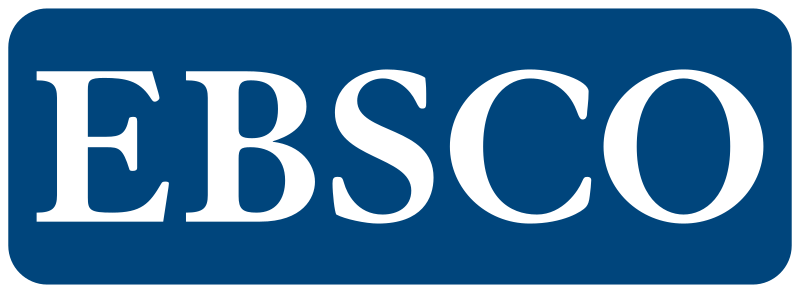Quantitative characterization of the variables of the organizational culture in the José Holguín Garcés Educational Institution in the city of Cali- February 2018
Caracterización cuantitativa de las variables de la cultura organizacional en la Institución Educativa José Holguín Garcés de la ciudad de Cali- Febrero 2018
Main Article Content
The Organizational Culture (CO) has become more relevant in recent decades becoming a key element for the design of corporate strategy, since in its essence are contained the principles, beliefs and values that model the behaviors and behaviors that are presented to the inside of organizations.
Considering the above, this research presents results that demonstrate the importance of the Cameron & Quinn model and the application of its OCAI tool, as one of the instruments to identify types of culture in organizations, in association with other statistical tools among the which we named the Principal Component Analysis (ACP), the VarImp function and the neural networks, in order to correlate the results in the identification of the type of organizational culture prevailing in the José Holguín Garcés Educational Institution, allowing to provide information with less bias of subjectivity and providing a greater degree of truthfulness.
This is how the results obtained from this research reflect a higher incidence of the hierarchical culture in the educational institution, not to mention that the types of Clan, Market and Adhocratic culture also have great representation, according to the results of the research.
Additionally, it is necessary to indicate that there is consistency in the results obtained both in the application of the OCAI, as well as in the APC and VarImp tools, where the participation of the type of hierarchical culture presents a higher level of predominance
Downloads
Article Details
Acar, A. Z., & Acar, P. (2014). Organizational Culture Types and Their Effects on Organizational Performance in Turkish Hospitals. Emerging Markets Journal. DOI: https://doi.org/10.5195/EMAJ.2014.47
Acosta, M. d., Ramos, L. G., Rio, F. G., & Morejon, V. M. (2012). Cultura organizacional y organizacion que aprende un analisis de la perspectiva de la innovacion. Coahuila, Mexico.
Albarracín, E. J., & Lema, D. G. (2011). Cultura organizacional y rendimiento de las Mipymes de mediana y alta tecnología: un estudio. Cuadernos de administración, 141.
Anonimo. (2002). Cultura organizcional. Revista de Medicina IMSS 2002, 203 - 2011.
Anónimo. (2009). Universidad de Granada. Obtenido de http://www.ugr.es/~rescate/practicum/el_m_todo_de_observaci_n.htm
Arias, F. G. (2006). El Proyecto de Investigación Introducción a la Metodología Científica (Cinco ed.). Caracas, Venezuela: Texto C.A.
Cameron, K. S., & Quinn, R. E. (2006). Diagnosing and Changing Organizational Culture. San Francisco, United Stated of America: John Wiley & Sons, Inc.
Castrillon, S. P. (2014). Caracteristicas predominantes de la cultura organizacional de la fuerza de ventas de la empresa SUSUERTE S.A. en el municipio de Manizales. Manizalez, Caldas, Colombia.
Constitución Política de Colombia. (1991). Constitución Política de Colombia. Constitución Política de Colombia. Bogotá.
Dávila, A. (1999). Cultura organizacional en una escuela católica mexicana: un estudio de caso. México: Siglo XXI Editores.
El Congreso de la República de Colombia. (21 de 12 de 2001). Ley 715 de Diciembre 21 de 2001. Ley 715 de Diciembre 21 de 2001. Bogotá.
Galvez Albarragan Edgar Julian, D. G. (Enero - Junio de 2011). Cultura organizacional y rendimiento de las Mypimes de mediana y alta tecnologia: un estudio emperico en Cali Colombia. Bogota.
Guerra, I. R. (01 de 10 de 2004). Gerencie.com. Obtenido de http://www.gerencie.com/cultura-organizacional.html
Ibarra, C. (26 de 10 de 2011). Metodologia de la Investigacion, blogstop. Obtenido de http://metodologadelainvestigacinsiis.blogspot.com.co/2011/10/tipos-de-investigacion-exploratoria.html
Icontec. (s.f.). Icontec Internacional. Recuperado el 10 de 2015, de http://www.acreditacionensalud.org.co/acreditacion.php?IdSub=115&IdCat=29
Kim S. Cameron, R. E. (2006). Diagnosing and Changing Organizational Culture: based on the competing values framework. San Francisco, United States of America: John Wiley & Sons, Inc.
Kim S. Cameron, R. E. (2006). Diagnosing and Changing Organizational Culture: based on the competing values framework. San Francisco, United States of America: John Wiley & Sons, Inc.
Kuhn, M. (Noviembre de 2008). Building Predictive Models in R Using the Caret Package. Journal of Statistical Software, 28, 17, 19. DOI: https://doi.org/10.18637/jss.v028.i05
Laurence, F. S. (2004). EL MODELO COMPETING VALUES FRAMEWORK (CVF) Y EL DIAGNOSTICO DE LA CULTURA ORGANIZACIONAL. Economía y Administración, 20-21.
Laurence, F. S. (Diciembre de 2004). El Modelo Competing Values Framework (CVF) y el Diagnóstico de la Cultura Organizacional. ECONOMÍA Y ADMINISTRACIÓN (63), 20.
Ministerio de Educación Nacional. (05 de 2009). Organización del Sistema Educativo. Organización del Sistema Educativo. Bogotá.
Moreno, J. J. (2002). Redes Neuronales Artificiales aplicada al Análisis de Datos. Redes Neuronales Artificiales aplicada al Análisis de Datos. Palma de Mallorca, España.
Olaf Merk, T.-T. D. (16 de 12 de 2013). The Effectiveness of Port-City Policies: A Comparative Approach. Recuperado el 14 de 05 de 2016, de http://dx.doi.org/10.1787/5k3ttg8zn1zt-en: http://www.oecd-ilibrary.org/urban-rural-and-regional-development/the-effectiveness-of-port-city-policies_5k3ttg8zn1zt-en
Olden, J. (2004). An accurate comparison of methods for quantifying variable importance in artificial neural networks using simulated data. Ecological Modelling, (February). https://doi.org/10.1016/S0304-3800(04)00156-5 DOI: https://doi.org/10.1016/S0304-3800(04)00156-5
Ouchi, W. (1984). Teoría Z. Barcelona: Ediciones Orbis S.A.
Raisirys González, F. S. (2008). ASPECTOS BÁSICOS DEL ESTUDIO DE MUESTRA Y POBLACIÓN PARA LA ELABORACIÓN DE LOS PROYECTOS DE INVESTIGACIÓN. Universidad de Oriente Núcle de Sucre, Escuela de Administración curso especial de grado, Cumaná.
Ramon, R. (2006). Historia y Evolución del Pensamiento Cientifico. Mexico.
Raquel Florez López, J. M. (2008). Las Redes Neuronales Artificiales Fundamentos Teóricos y Aplicaciones Prácitcas. La Coruña: Netbiblo, S.L.
Roberto Hernande Sampieri, S. M. (14 de 06 de 2012). Construccion de un instrumento para medir el clima organizacional en funcion del modelo de los valore en competencia. Construccion de un instrumento para medir el clima organizacional en funcion del modelo de los valore en competencia. Ciudad de Mexico, Mexico.
Rodriguez Guerra I. (2004). Cultura Organizacional. Cuba: Universidad de la Habana.
Romo, R. S. (2008). Emprendurismo, cultura,clima y comunicación. Málaga, España: Grupo Eumednet.
Sampieri, R. H., Valencia, S. M., & Soto, R. C. (2012). Construcción de un instrumento para medir el clima organizacional en función del modelo de los valores en competencia. Contaduría y Administración (59), 237. DOI: https://doi.org/10.1016/S0186-1042(14)71250-1
Schein, E. H. (2004). Organizational Culture and Leadership (3rd Edition ed.). San Francisco, United States of America: John Wiley & Sons, Inc.
Sun, S. (2008). Organizational Culture and Its Themes. International Journal of Business and Management, 3(12), 137. DOI: https://doi.org/10.5539/ijbm.v3n12p137
Torres, C. E., & Rodriguez, J. C. (2009). Asuntos teoricos y metodologicos de la cultura organizacional. Mexico: Civilizar 9. DOI: https://doi.org/10.22518/16578953.711
Vargas, O. H. (Marzo de 2007). La cultura humana y su interpretación desde la perspectiva de la cultura organizacional. Pensamiento y Gestión (No. 22), 145.










